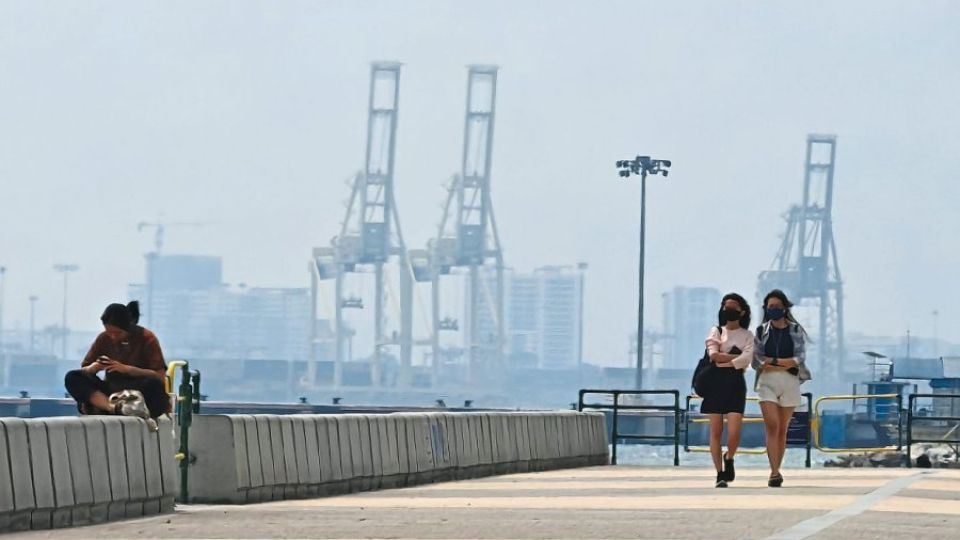April 20, 2023
GEORGE TOWN – The number of people seeking medical attention for respiratory issues has gone up as the haze gets worse.
Medical professionals said there were more people seeking treatment in hospitals for sudden asthma attacks, wheezing, breathlessness and allergic rhinitis in the past two weeks.
Internal medicine consultant Dr Evelyn Chan said they were suffering from coughing, wheezing and feeling breathless.
“Those with underlying health issues like asthma are advised to keep their inhalers with them at all times.
“We also advise people to take the flu jab and stay indoors.
“Mask up if you have to go out and it is important to drink more water to keep hydrated,” she said.
Consultant otorhinolaryngologist Dr Sow Yih Liang said there had been a slight increase in patients with nose allergies.
He said there were those who came in with allergic rhinitis, which is quite similar to asthma but it has to do with the nose.
(Allergic rhinitis is a type of inflammation in the nose that occurs when the immune system overreacts to allergens in the air.)
“It is a common allergy that results in sneezing and a runny nose. This happens when there is haze and it triggers hypersensitivity in the nose.
“Some come in with a cough as well, and it is all interconnected.
“The dry particulates enter through the nose and then cause inflammation. When people breathe through the mouth, they develop a cough.
“When it comes to haze, those affected are across the board. With allergic rhinitis, it usually affects young people, teenagers and children.
“We do recommend a sinus cleanse (sinus flush),” he added.
Dr Sow, who is also a head and neck surgeon, said there will be an influx of patients when there is haze but the number has come down as many people have been wearing face masks since the Covid-19 pandemic.
“Face masks work as a filter and we encourage the public to wear them outdoors, especially those with allergic rhinitis,” he said.
Meanwhile, it is business as usual for tourism in the state despite the haze.
Penang Tourist Guides Association president Chin Poh Chin said tours are planned way ahead, usually weeks or months in advance.
“Only local tourists coming on their own will cancel or postpone tours. Even that is very rare.
“We have minimal cancellations and, on our part, we will advise our guides and guests to wear face masks and drink more water when there is haze,” she said.
Air Pollutant Index (API) readings in the state have been leaning towards unhealthy levels, and the odour of smoke hangs over the air.
The API readings on Tuesday evening were Balik Pulau (126), Batu Uban (155) and Tanjung Bungah (103), falling under the “unhealthy” category.
The mainland shows a reading of between 126 and 148.
In Kedah, air quality was between 151 and 156.
An API reading of between 0 and 50 is good, while 51 to 100 is moderate, 101 to 200 is unhealthy, 201 to 300 very unhealthy and above 301 is deemed hazardous.
On Monday, the air quality in Penang plummeted as the API of one meteorological station showed that the API was at an unhealthy level of 145.
According to the Asean Specialised Meteorological Centre’s (ASMC) website, there were no hotspots with substantial open burning in Malaysia and only a single hotspot was detected in Sumatra.
However, satellites have registered hundreds of hotspots spread across millions of hectares in eastern Myanmar and throughout Laos.
It is believed that these hotspots are the result of farmers practising traditional slash-and-burn farming, which entails large swathes of jungle being cleared and then burned to enrich the soil with potassium and phosphate while killing pests.
On Saturday, Natural Resources, Environment and Climate Change Minister Nik Nazmi Nik Ahmad said the nation was bracing for the return of the haze due to the recent hot and dry conditions.

